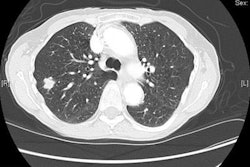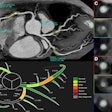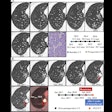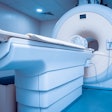A blood test that identifies specific biomarkers can detect lung cancer recurrence before CT or PET/CT scans find evidence, according to research presented at the 2017 Multidisciplinary Thoracic Cancers Symposium in San Francisco.
A team led by Chimbu Chinniah of the Perelman School of Medicine at the University of Pennsylvania discovered that the test found recurrences an average of six months before the imaging exams -- suggesting that blood tests could be used in conjunction with the scans to guide personalized treatment for patients with non-small cell lung cancer.
The prospective study included 48 patients with stage II to III lung cancer, all of whom were treated with chemoradiation. The researchers took blood samples from the patients before, during, and after treatment; they identified tumor cells by analyzing the samples with a probe that detects increased activity of an enzyme produced when tumor cells replicate. The patients were also followed with CT or PET/CT imaging at three-month intervals.
At a median follow-up of 10.9 months after treatment, 46% of the patients experienced recurrence or progression, identified by surveillance scans and biopsies. Blood samples were taken following chemoradiation therapy from 20 of the 22 recurrent patients; 15 of these 20 had elevated circulating tumor cell counts following treatment. Of these 15 patients, two-thirds showed a rise in these counts an average of six months before PET/CT or CT scans detected the recurrence.
"The additional lead time afforded by an earlier diagnosis may enable doctors to better tailor alternative and salvage treatments to improve their patients' outcomes and quality of life," Chinniah said in a statement released by the American Society for Radiation Oncology (ASTRO), one of the meeting's sponsors. "Earlier detection of recurrence may even translate into an increased likelihood of curing these patients when their tumor burden is lowest and thus more likely to respond to therapy."




















